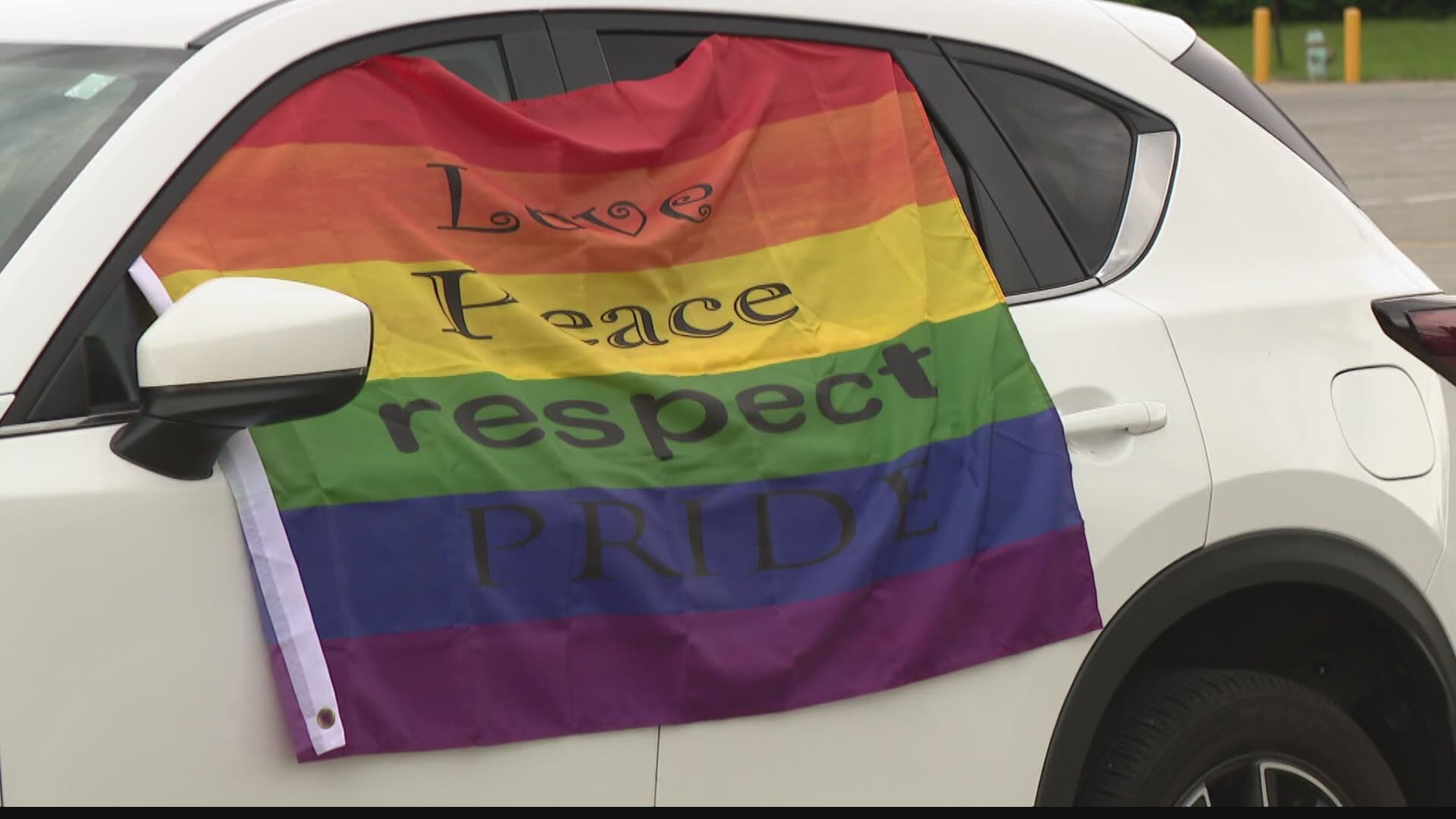INDIANAPOLIS — A historic victory for the LGBTQ community, which is now protected from workplace discrimination after the Supreme Court's landmark ruling Monday.
In a surprising 6-3 vote, the court ruled that Title VII of the 1964 Civil Rights Act that prevents sexual discrimination based on sex also covers sexual orientation and gender identity.
Among the justices voting in favor was conservative Chief Justice John Roberts, who grew up in Indiana and President Donald Trump's appointee Neil Gorsuch, who wrote the opinion.
"It is impossible to discriminate against a person for being homosexual or transgender without discriminating against that person based on sex," Gorscuh wrote. If a boss fires a man for being attracted to other men, Gorsuch continued, then "the employer discriminates against him for traits or actions it tolerates in his female colleague."
Justice Samuel Alito, called the ruling "preposterous," in his dissent.
"The question in these cases," he wrote, "is not whether discrimination because of sexual orientation or gender identity should be outlawed. The question is whether Congress did that in 1964. It indisputably did not."
Kit Malone, an ACLU of Indiana advocate, described the ruling as "really a landmark victory and milestone...Having the Supreme Court affirm that in very strong language really gives us a lot of hope for future."
For Malone, it's personal.
"As a trans person who went from a 20-year career as a high school teacher to being unable to get a job at a Rally's because of my trans status, it means a lot to see that affirmed," she said.
But what the ruling doesn't address is public accommodations and religious exemptions. Nearly two years ago, long-time Roncalli High School guidance counselor Shelly Fitzgerald lost her job because she's married to a woman. Lynn Starkey, another guidance counselor lost her job for the same reason as did Cathedral High School teacher Joshua Payne-Elliott. Same-sex marriage is against church teaching.
All filed lawsuits against the Archdiocese of Indianapolis. Attorney Kathleen Delaney represents Starkey and Payne-Elliott. Delaney thinks Monday's Supreme Court decision helps their cases.
"The Catholic schools and the archdiocese involved in those cases were hoping to argue that sexual orientation was not a protected category and they should have been allowed to terminate them without any consequences and that argument has been taken away by this decision," Delaney said adding the ruling "validates the dignity of every American and confirms no one would be fired because of who they are or who they love."
An attorney for the archdiocese was not available for comment Monday night.
Malone says despite today's ruling, there's still work to be done.
"Discrimination is not going away because of this," she said. "Workplace discrimination is not the only issue we face. Just the past two weeks two more trans women were murdered...We are not going away and we will not back away from a fight until all of us are safe and all of us can live unfettered jobs, which I think all people want."

